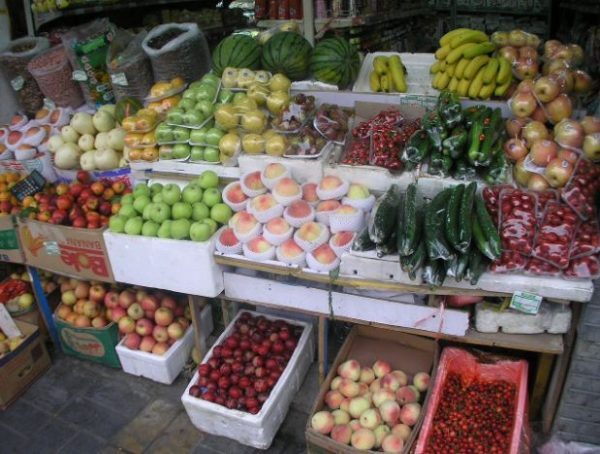Smallholder farmers in Kenya are set to benefit from a five-year USD50 million (Sh7.6billion) United States Agency for International Development (USAID) project aimed at supporting local food production.
In a program known as the Local Food Systems (LFS), USAID aims to enhance food production in the country by 2027 to meet the growing population’s needs.
The initiative will span 17 counties and involve collaboration with farmers, growers’ organizations, markets, transporters, counties, and the national government, along with other stakeholders in the value chain.
According to Robert Mwadime, the outgoing Chief of Party (CoP) at USAID, the move is in line with the agency’s intention to support and complement the efforts of the government and other players in the value chain to boost local food production.
Mwadime also oversaw the implementation of a six-year project, the Kenya Crops and Dairy Marketing Systems (KCDMS), which focused on dairy and horticulture value chains. This initiative impacted the lives of over 300,000 farmers, emphasizing competitiveness, inclusivity, and resilience as its core pillars.
“We are optimistic that the upcoming project is set to commence in the initial quarter of 2024 with the goal to enhance food production systems by engaging all stakeholders across the value chain, from the farm to the markets,” said Dr. Mwadime recently during a close out ceremony of the KCDMS project in Kiambu County, Kenya.
He added that the LFS project is at the proposal submission and reviewing stage before the successful bidders or administering agents are announced.
“The final bidders will collaborate with farmer organizations using a food business aggregation model to reduce losses and assist growers in benefiting from economies of scale.”
Markets linkages
Another facet of the project involves collaborating with markets to address barriers that impede the supply of commodities. Transporters will be acknowledged and assisted to ensure the timely and proper transportation of food from the farm to the markets.
In the market-focused segment, Mwadime emphasized the importance of well-constructed, clean structures with modern storage facilities to ensure the prolonged quality of food commodities. He highlighted that this initiative aligns with the objectives of the Bottom-up Economic Transformation Agenda (BETA) of the Kenya Kwanza Government.
Mwadime underscored the project’s acknowledgment of the Kenyan Government’s role in providing subsidized fertilizers and other inputs to boost production. Within the project framework, farmers will receive support through an aggregation model, shielding them from potential exploitation by middlemen and unscrupulous traders.
KCDMS initiative
The KCDMS initiative, grounded in catalyzing sustainable development and fostering resilience in the nation’s agricultural market systems, was implemented in 12 counties. It actively engaged with over 200 agribusinesses and positively impacted over 300,000 farmers.
During the closeout session of the six-year KCDMS program, Dina Esposito, Assistant Administrator of the Bureau for Resilience, Environment, and Food Security (REFs) based in Washington DC, affirmed USAID’s commitment to ongoing investments in Kenya.
“We have allocated more than USD 125 million for upcoming initiatives in the agriculture resilience and irrigation sectors at USAID, with plans to launch them within the next 12 months,” she said adding that the new activities aim to alleviate poverty, enhance household food security, and expand access to crucial services for over 1.5 million Kenyans.
The administrator extended an invitation to the Kenyan government to continue on this journey together with USAID to explore new opportunities and partnerships and collaborate on future initiatives that will further their shared course.









